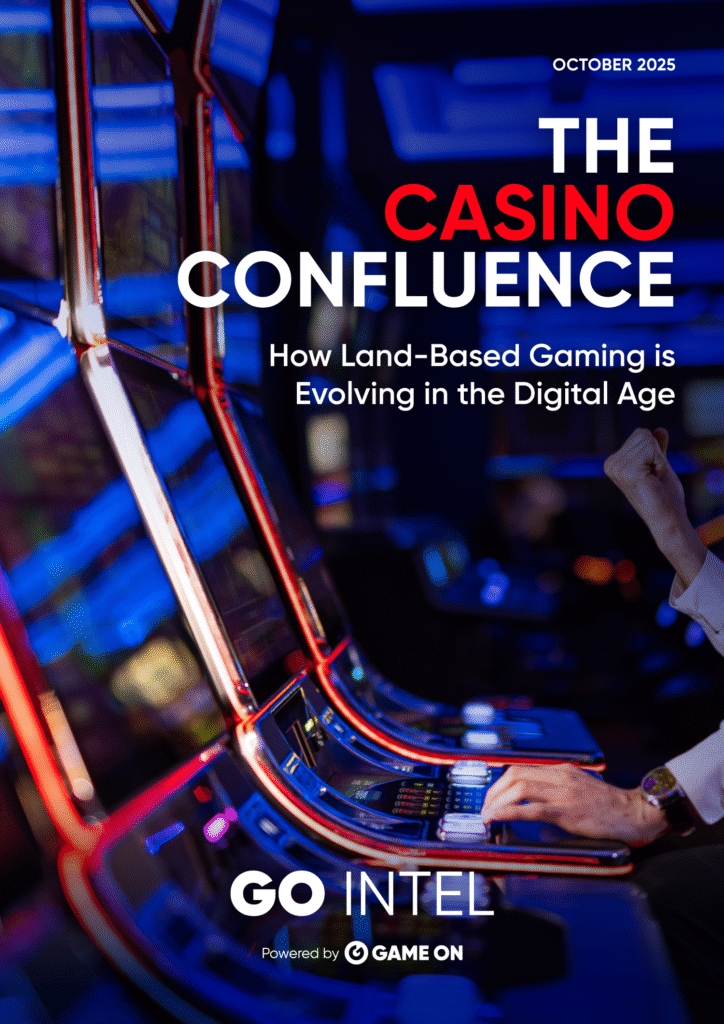The Casino Confluence: How Land-Based Gaming is Evolving in the Digital Age
Executive Summary
The US land-based casino industry in 2025 stands at a pivotal intersection of traditional gaming and digital expansion. The sector has rebounded strongly post-pandemic, reaching record revenues; U.S. commercial gaming alone hit $72.0 billion in 2024 (up 7.5% year-on-year), and when tribal casinos are included, total gaming revenue is approaching $115 billion annually. Across the country, nearly 1,000 casinos (commercial and tribal) operate in over 40 states, anchoring local economies and drawing tourists to hubs like Las Vegas (which alone generated $8.5 billion on the Strip in 2024) and Atlantic City ($2.84 billion). Land-based casinos remain a major employer and tax contributor, supporting hundreds of thousands of jobs and yielding $15.9 billion in direct gaming taxes in 2024 for state and local governments.
The rapid expansion of online gambling – including mobile sports betting and iGaming (online casino games) – is reshaping the industry’s revenue mix and customer engagement. Online channels made up about 30% of US gaming revenue in 2024, with iGaming soaring to $8.4 billion (↑28.7% in 2024) and sports betting generating $13.7 billion. In markets like New Jersey, online casinos and mobile sports books have nearly matched the revenue of brick-and-mortar casinos – in 2024, New Jersey’s internet gaming revenue ($2.39 billion) was equivalent to 85% of Atlantic City’s in-person casino winnings. This online surge has prompted concerns about cannibalisation of retail casinos, but evidence suggests a more nuanced impact. Many operators report that digital offerings can be complementary: for example, New Jersey players who engage both online and on-premise visit physical casinos 25% more often than those who only play in person, and once in-person patrons began using online gaming, their visitation to brick-and-mortar casinos jumped 55% above prior levels. The net effect varies by region, but overall, the combined growth of online and land-based gambling has expanded the total market.
Land-based casino operators are responding with strategic adaptations to remain competitive and relevant in this digital age. Major casino companies such as MGM Resorts, Caesars Entertainment, and Penn Entertainment have launched or partnered with online platforms to create omni-channel experiences. These include integrated loyalty programs that unify rewards across casino floors and mobile apps – e.g. Caesars’ acquisition of William Hill enabled a single-wallet system linking online betting with Caesars Rewards, and MGM’s BetMGM venture connects to MGM Rewards. Traditional operators are also diversifying into non-gaming amenities to offer unique experiences that online entertainment cannot replicate. From Las Vegas Strip resorts to regional casinos, revenue from hospitality, dining, nightlife, retail, and events now rivals or exceeds gaming revenue, reflecting a conscious shift toward becoming all-inclusive entertainment destinations. For instance, Nevada casinos now earn barely 37% of total resort revenues from gaming, with the majority coming from hotels, restaurants, shows, and other attractions. Operators have invested in attractions like nightclubs, pool parties, e-sports arenas, concerts, and fine dining to draw younger generations who prioritise “experiences” over pure gambling. At the same time, casinos are modernising their gaming floors with new technology – deploying cashless payment systems, mobile apps for on-site play, and data-driven personalisation – to meet consumer expectations for convenience and innovation.
Looking ahead, the future outlook for the US land-based casino sector is one of cautious optimism blended with uncertainty. We anticipate ongoing consolidation and partnership activity as the lines blur between online and offline gaming (e.g. the 2020 merger that created the new Caesars Entertainment with 55 properties, and Penn Entertainment’s 2023 partnership with ESPN to rebrand its sportsbook). Regulatory shifts will play a pivotal role: more states are considering legalising iGaming (online casinos) and mobile sports wagering, though tribal gaming compacts and lobbying by local operators can slow the pace – especially in states like California or Texas, which represent massive untapped markets. State regulators and legislators are increasingly focusing on issues like responsible gambling in the digital realm, tax policy parity between online and land-based sectors, and updating rules to accommodate cashless wagering and other tech innovations. Meanwhile, technology will be a key enabler and disruptor in the coming years, from AI-driven marketing and facial-recognition security to immersive virtual reality betting experiences, potentially redefining how casinos attract and retain customers.
Over the next five years, we present three scenarios ranging from a “Digital Domination” outcome (where online gambling becomes the primary channel, forcing many casinos to reinvent or downsize) to an “Integrated Convergence” (where seamless online-offline ecosystems flourish, and omni-channel integration is the industry norm) or a “Resilient Physical Market” (where brick-and-mortar gaming retains robust demand through tourism, tribal sovereignty, and experiential appeal). In all scenarios, land-based casinos are evolving rather than disappearing – the industry’s response now will determine whether traditional gaming venues thrive as central pillars in a broader entertainment ecosystem or struggle in the shadow of digital competition.
This report provides a state-by-state analysis and strategic insights to equip operators, regulators, investors, and tech partners with an actionable understanding of how U.S. land-based gaming is adapting in the digital age. Key recommendations focus on how casino operators can balance digital integration with reinvestment in their physical assets, how policymakers can modernise regulations to encourage innovation while protecting consumers, and where investors might find the greatest opportunities as the casino industry converges with the online gaming boom.

